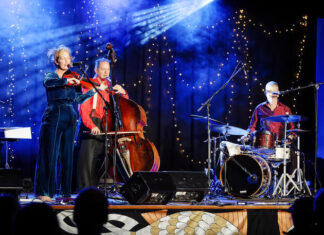Peter Farago
IT’S the start of another year and Geelong Football Club’s grand final hero has become the villain again, falling foul of the boys in blue.
This time, Cats forward Steve Johnson was caught speeding at more than twice the limit in a suburban 50 zone on his way to a hit of golf at East Geelong.
But this time the forward apparently reacted quickly, dobbing himself in to club officials and teammates before awaiting his punishment.
Geelong’s leadership group mulled over it while the club ruled out sacking the troubled player.
Eventually community service was the punishment – 50 hours of it working with victims of road trauma.
That’s a fair cop for a player who, on the face of it, has seemed fairly blase about life outside football.
Somewhat of a reality check.
There’s some debate about the seriousness of Johnson’s latest transgression – whether it’s worse or not than his alcohol-fuelled moment of madness in Wangaratta last time.
Well, ask families who have lost loved ones to the vehicles of speeding motorists and you should get the idea.
The Transport Accident Commission, a big sponsor of professional football, has spent nearly two decades pounding home the message that speed kills.
While raw statistics show that the community gets the message – Victoria has had record-low road tolls for years – it’s obviously still not enough.
But this is not whether a football player should know better or not.
It’s about a person of some standing in the community setting an example.
Everybody makes mistakes.
But this is clearly a stupid one – and one that Johnson regrets.
There’s speeding at a few kilometres over the speed limit and there’s dicing with death.
Suburban streets have a 50 kilometre an hour speed limit for a reason.
People live there.
People shouldn’t have to risk dying there, too.
So, to Geelong Football Club’s leadership group, hopefully the community service works.
But if it really wants to make an example of Johnson, the entire club should take part in driver education and promote the message – not in return for sponsorship dollars – but as genuine community service to highlight that speed really does kill.
It could save the lives of a few potential Geelong supporters.
The fast track to redemption
Digital Edition
Subscribe
Get an all ACCESS PASS to the News and your Digital Edition with an online subscription
Community grant recipients announced
The City of Greater Geelong has announced the 78 recipients of a funding pool of $772,131 for its latest round of community grants.
Awarded by...








